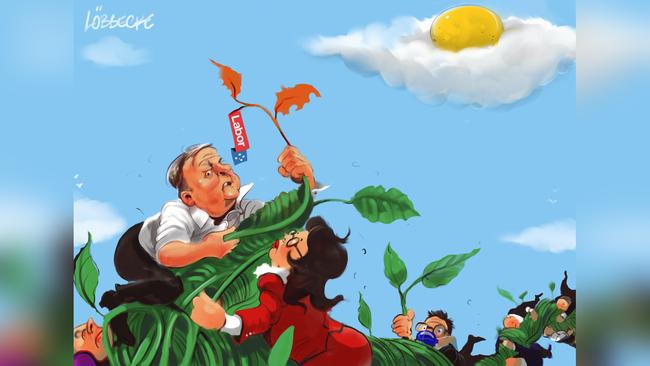
And if the Labor Party opposes people having access to more of their own money, it will expose the fact that the ALP’s history as the workers’ party is just that — history.
Immediate changes should include extending the period for withdrawals beyond the September 24 cut-off date and allowing Australians to withdraw more savings from their superannuation accounts.
Here are just a few sound reasons why. Unemployment has reached a 22-year high of 7.4 per cent, and even these official figures ignore the impact of JobKeeper and don’t include the full catastrophe of people who have given up looking for jobs or are underemployed. And even if you have a job, if your partner or adult kids living at home are unemployed or underemployed, less money is coming in.
Australians are doing it tough. To care for their families, Australians should have the option of withdrawing more of their own money from superannuation accounts, especially when worse economic news is to come.
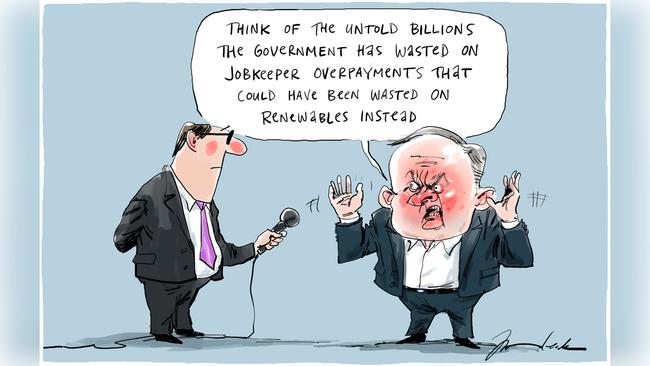
Falling business profits, rising unemployment and inflation will mean a further drop in real wages. In fact, Australian workers have been warned to expect low or negative wage growth until the middle of the decade. The Reserve Bank has downgraded its forecasts, expecting wages to rise a measly 1.5 per cent this year, and 1.75 per cent next. Some economists predict a flattening to 1 per cent. In other words, the value of what we do bring home is falling.
All of this makes it unconscionable to deny Australians access to more of their savings so that they can decide whether they would be better off having some of their forced savings now, or in retirement, when they may or may not need additional money.
That small step will test Labor, the unions and industry super funds. Can Labor put aside its misplaced ideology, its greed and crony capitalism? Even after the Henry review told the Rudd government that a 9 per cent surcharge was about right, Swan and co knew better, increasing the rate to 12 per cent. It made eminent sense — for Labor. It depends on union donations, which in turn depend on the endless largesse unions enjoy from industry super funds.
Liberal senator Andrew Bragg’s new book Bad Egg, How to Fix Super traces the rising amounts paid to unions by industry super funds in the form of board fees, sponsorships, marketing deals and various other fees for service — from $3.22m in 2006-07 to $11.3m last financial year, and forecast to grow to $31.4m by 2030. Imagine the additional riches Labor can expect from industry super funds via unions when a 12 per cent super levy is siphoned from workers’ wages.
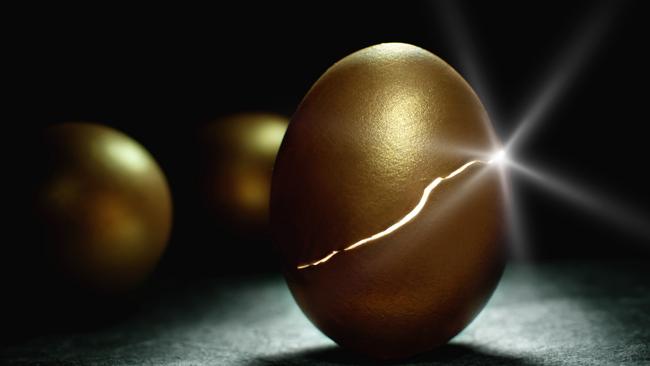
This fundamental split between Labor’s institutional interests and the interests of workers is cementing the end of the ALP as the workers’ party. And this will threaten Labor’s electability not just at the next federal election, but well beyond.
What about industry super funds? Will they set aside the self-interest driven by the billions of dollars in fees they extract from fund members? Right now, industry super funds account for the lion’s share of the country’s $2.73 trillion in retirement savings that generate massive fees. Can industry super funds look beyond these rivers of gold and the power they have amassed from a system set up by Paul Keating to ensure that unions would exert influence through a mandated gravy train of superannuation contributions even as union membership dwindled?
Of course not. When the Morrison government announced that Australians could access up to $10,000 before July 1 and another tranche up to $10,000 before September 24, the industry funds went into meltdown. In a concerted campaign to stop workers accessing their own money, industry super funds predicted Armageddon, demanded they be rescued from their own poor decisions to invest in illiquid assets and made threats about not being able to invest in capital raisings and infrastructure projects.
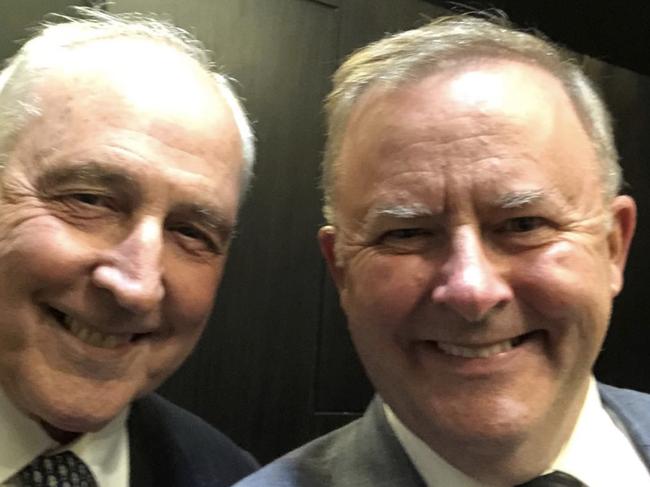
The Treasurer was right to stare them down then because all of their threats were empty. And, offered the choice by the Morrison government, Australians responded in their millions, reminding super funds that their hard-earned money is not the plaything of funds to secure fat fees and political power.
Up to July 5, superannuation funds received 2.7 million applications to withdraw a total of $19.1bn under the COVID-19 Superannuation Early Release Scheme. The average withdrawal to July was $7476. Just one week into the next tranche, the average withdrawal has risen to $8904.
It is crystal clear that Australians want to use more of their forced savings to get through this crisis — and, frankly, rich, powerful and hopelessly conflicted industry super funds should stop telling Australians they are stupid to do so.
Even public servants and members of the Australian defence forces are rushing to withdraw their own savings for a second time. Sure, quibble about whether they meet withdrawal criteria, but the central point is Australians in both private and public sectors want access to more of their own money.
The worsening economic outlook has thrown the shocking flaws of our superannuation system into stark relief. The Grattan Institute has pointed out that the superannuation sector extracts more than $30bn in fees from members’ savings a year, almost 2 per cent of Australia’s annual gross domestic product. Add in Treasury figures that show tax forgone from compulsory super is almost $40bn last financial year. Now compare that total to the $50bn cost of the pension. Our superannuation system apparently costs more than it saves us. And the last Intergenerational Report predicts the country will still have 70 per cent of retired people on the pension in 2050.
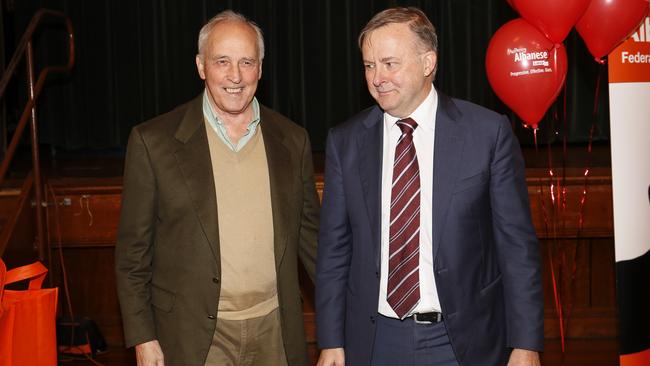
So, who is the superannuation system serving best?
Given the depth and breadth of the economic crisis, and stagnating wages growth, it would be even more unconscionable for super funds to keep demanding that more of our take-home pay should go into compulsory super.
Even before the COVID-induced economic crisis, Grattan recommended against lifting compulsory super contributions to 12 per cent because it would benefit wealthier workers, force poorer workers to forgo more of their income and cost the federal budget an additional $2bn a year in tax concessions. The Productivity Commission also recommended pausing any increase to the super guarantee rate.
With the government’s retirement review due out this week, the Treasurer and the Prime Minister have a chance to stand with Australians who want to access more of their own superannuation savings. It will leave the Labor Party stranded, once again wedded to the institutional self-interests of unions and industry super funds who rake in extraordinary fees, wield enormous power and threaten an apocalypse at the mention of sensible reforms to help us survive this crisis.


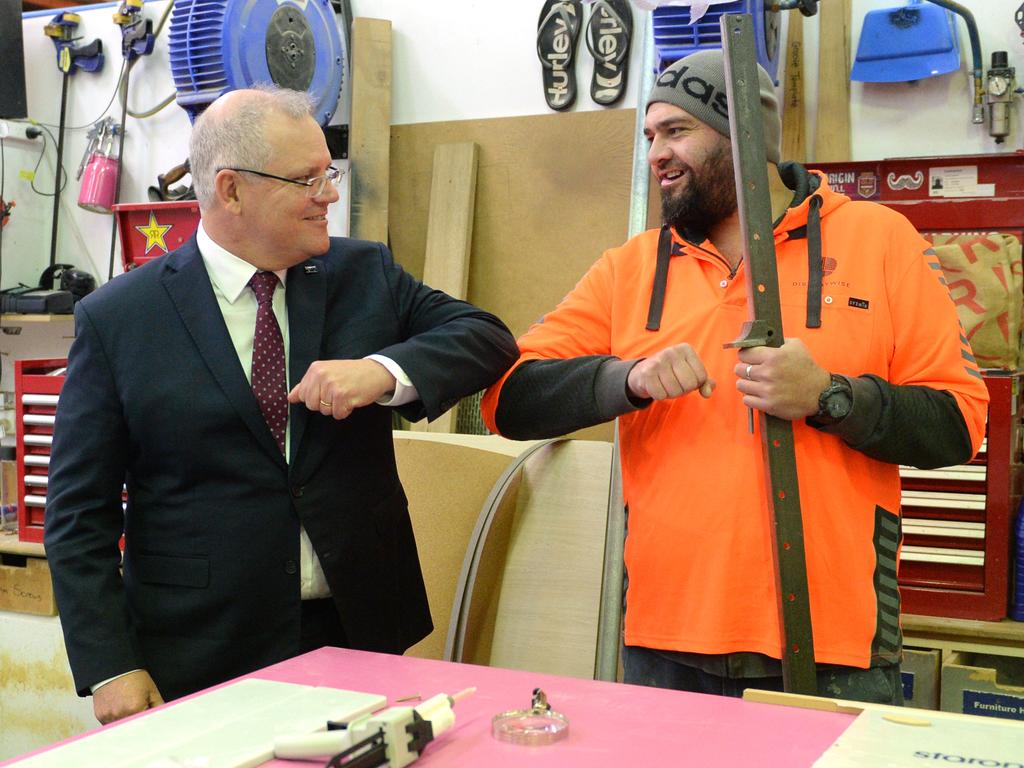
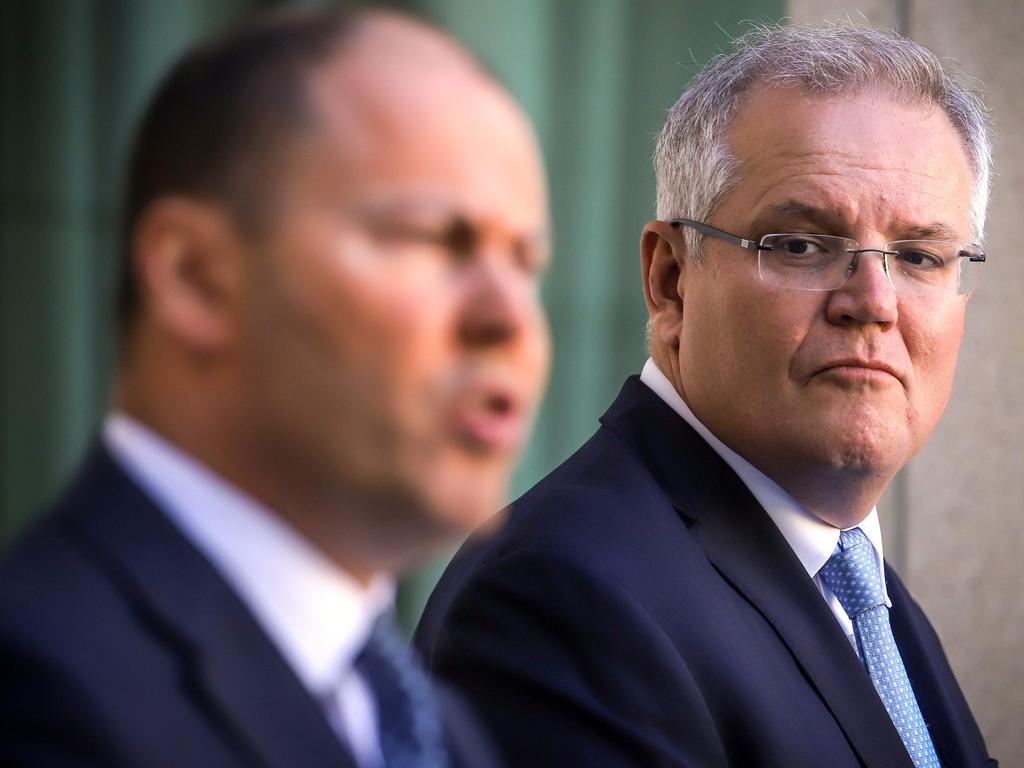

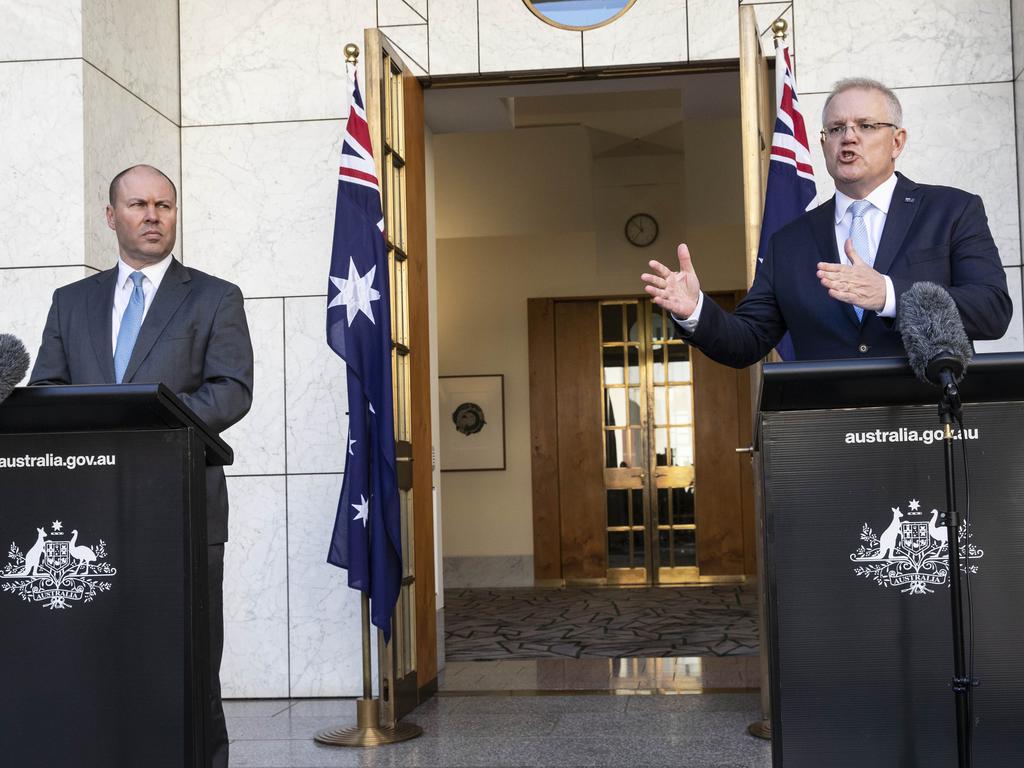
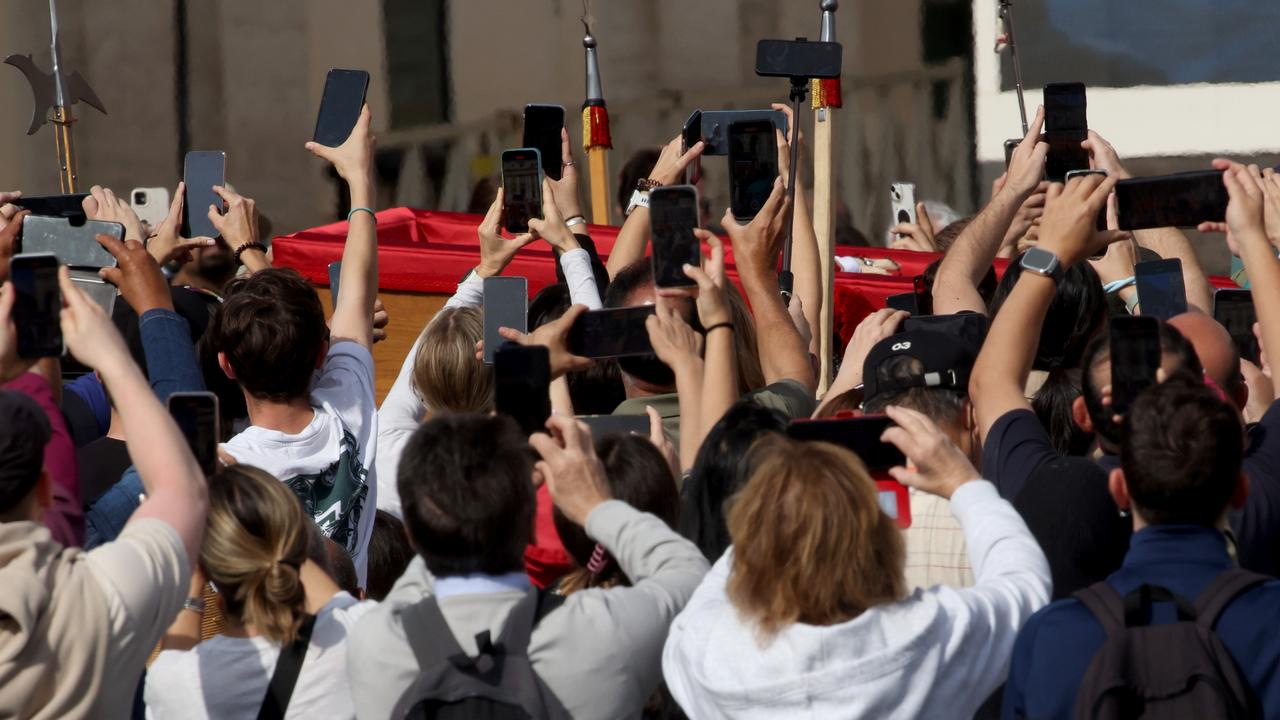

On Thursday, Josh Frydenberg will outline Australia’s economic outlook. Logic and necessity are driving the Morrison government to extend taxpayer subsidies such as JobSeeker and JobKeeper during this unprecedented economic crisis. It makes even more sense to make similar extensions to the early access to superannuation schemes so that Australians can continue to access more of their own savings during the worst economic crisis to hit this country since World War II.